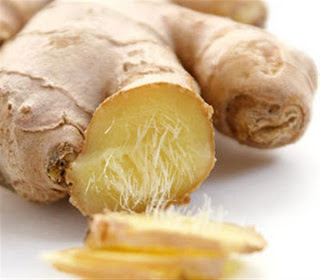Coughing is a phenomenon that is easily found in every state. For some people cough is a common thing, but for others may be very disturbing.
Perhaps, everyone would have had a cough. Some are mild, some severe. There are phlegm, there are dry. Either because it was unusual, and people underestimate the cough. The problem, if left untreated, the infection occurs. And if it is acute, it is likely difficult to treat.
Actually, coughing serves to clear the throat and respiratory tract. But when excessive, it is a disease. Cough usually appear suddenly. Could be due to colds, influenza or sinusitis.
Treatment. There are two ways to treat cough with phlegm, that is with medication and without medication. Coughing up phlegm that is still light can be reduced by frequently drinking water. The point is to help thin the mucus and reducing irritation or itching. Avoid dusty or even food and drinks that can stimulate the throat. Avoid the night air as the cold temperature.
Another way is to take cough medicine. But it should not be arbitrary. Cough medicine that is used must match the type of cough. Cough can be divided into two groups, namely an expectorant (thinning phlegm) and antitussive (cough suppressant).
Cough due to infection may also be treated with antibiotics. Cough with phlegm because the virus can be treated with antifungal drugs. While a productive cough because of asthma can be treated with asthma medications such as inhaled medication (inhalers), medication, eating, and syringes. If the cough is an acute, should be considered to perform the operation. After chemotherapy and there was light.
For those of you who want natural cough medicine some herbs are believed to overcome cough.
- Ginger rhizome (Rhizoma Zingebris),
Ginger and preparations have long been used for treatment of flu symptoms. The effects associated with the immunomodulatory activity. In addition, some compounds contained in ginger may be useful in increasing body temperature. Clinical trials Ginger is used more as an anti-nausea and vomiting.
- Mint Leaves (Folia Menthae)
Anti-cough effect: As an expectorant. Essential oils stimulate the respiratory mucosa; enhance or dilute the mucus secretion; provide a sense of cool; and lowers the surface tension of the lung, thus improving the flow of incoming air. Another effect of Mint Leaf: As anti-microbial.
- Rhizome Powder (Kaemferaie Rhizoma)
A key benefit is overcome respiratory disorders. Effectiveness data for respiratory disorders are generally still in experimental animals. The use of the aromatherapy: for relaxation, carminative and sedative. Another use: Cosmetic skin. Activity: Ethyl cinnamic, asorelaksasi.
- Fruit Lime (Citrus Aurantii Fructus)
Lime for use of the cough is mostly done empirically. Benefits of Essential oil content: As the aroma therapy of the respiratory tract. Benefits of Vitamin C content: Can be connected with aktivitasi munomodulator. Current clinical studies for standardized extract (Sineprin) is more widely used for weight control.
Thymi is one plant that has long been used as antibatuk. The main effect as an expectorant and Antis pasmodik. This activity allegedly related to the content of Essential Oils (thymol and karvakrol), and flavonoids. Thimi lubrication intra muscular and oral administration in experimental animals, showed stimulation of the respiratory tract. In a double blind randomized clinical trial in 60 patients with complaints of productive cough. Use of syrup Thimi (3x10mL/hari) for 5 days, proved to give effect to the bromheksin not significantly different.
- Nutmeg (Myristicae Cement)
Nutmeg is the main content of essential oils. Use of Nutmeg which has supported scientific studies is as a sedative and carminative agent. Animal studies prove the Nutmeg can increase the duration of sleep.
- Sweet root (Glycyrrhizae Radix)
Sweet is the root of the main raw material for OBH (Black Cough). The development of the Black Cough is now combined with conventional medicine. The main content is Glisirisin Sweet Root.
.jpg)
.jpg)
.jpg)
.jpg)
.jpg)
.jpg)
.jpg)
.jpg)
No comments:
Post a Comment